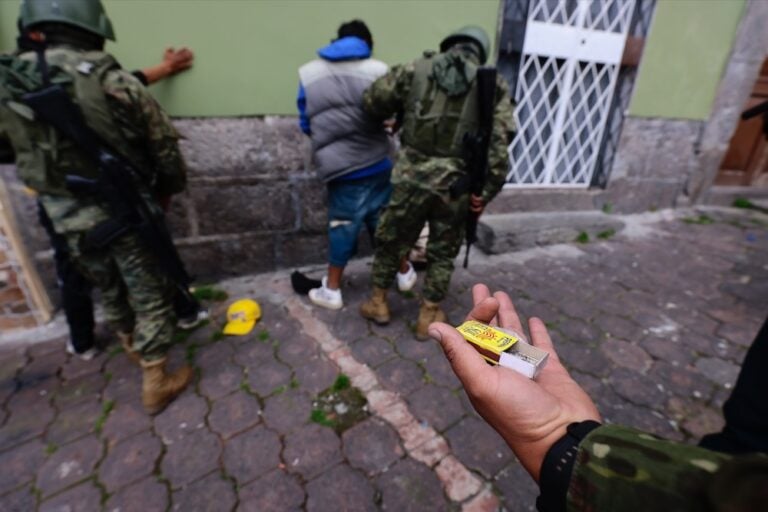The magazine had been prosecuted for having allegedly broken the 48-hour electoral silence rule prior to an election by publishing an editorial that referred to the questions included in the popular consultation and referendum of 7 May 2011.
(Fundamedios/IFEX) – 13 December 2011 – The president of the Electoral Disputes Tribunal, Ximena Endara, dismissed as ungrounded the accusation that organizations related to the national government had made against the magazine “Vistazo”. The magazine had been prosecuted for having allegedly broken the 48-hour electoral silence rule prior to an election by publishing an editorial that referred to the questions included in the popular consultation and referendum of 7 May 2011.
During this last hearing, Judge Endara pointed out that “Vistazo” did not infringe the Code of Democracy by publishing an editorial a day before the consultation. There were another two hearings before this one, on 19 and 31 October. Both were suspended because, after receiving information about both parties’ arguments, the judge requested time to deliberate and issue her ruling.
On 20 June 2011, Víctor Raúl Ocaña García, president of the Bolivarian Economy Support Chamber, together with members of the Sumak Tarpuy Ayllukunapak Association, the Confederation of Members of the Peasants’ Social Security, the Diabluma Collective and the Nukanchi Allpa Corporation – all related to the government – sued the magazine. This took place after President Rafael Correa requested, during his 4 May radio and TV program, that “Vistazo” should be sanctioned for committing what he called “a shameless electoral infraction”. The organisations also demanded the payment of US$100,000 in fines.
The accusation proposed by the president, which led to the lawsuit, was based on the editorial titled “Un no rotundo”. This was published by “Vistazo” in its 1049 edition on 4 May, stating the magazine’s position and analyzing the motives for voting No in questions 3, 4, 5 and 9 of the referendum, which were related to changes in the judicial system, and limits on property and the diffusion of contents by the media.
Patricia Estupiñán, “Vistazo”‘s head editor, stated previously to Fundamedios that the article was an editorial and that, therefore, they did not infringe on the electoral law. “We did not make propaganda or promote the No vote, what we did was express our editorial position…but opinion is now being sanctioned,” Estupiñán said.
Rafael Oyarte, one of “Vistazo”‘s lawyers, reaffirmed what was said in the previous hearing and stated that “the summons to trial is not about logos, or anything like it,” an argument that was insisted on by the accusers, represented by Pablo Baca Mancheno, who had said previously that “‘Vistazo’ acted as a political subject, without being accredited to do so.”


